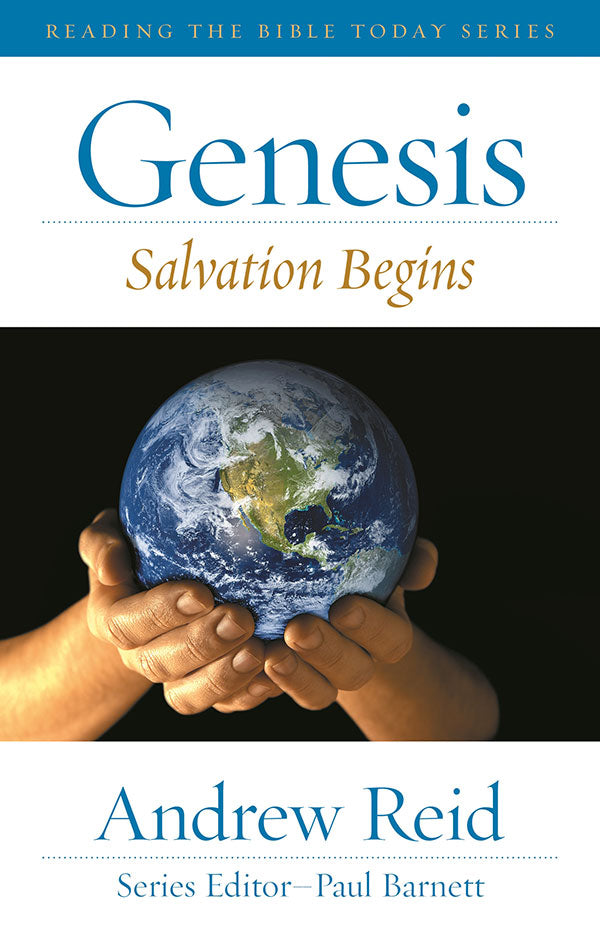
Imperfect parents need grace upon grace
Gospel hope for when we’re losing our grip.
The burden of ‘best practice’
I have a picture in my mind of what ‘best practice’ looks like for Christian parents, and it looms large in my imagination and sometimes weighs heavily on my heart. ‘Best practices’ are good things—like family prayer times, calm routines and careful discipline. Such good things, things I want and strive for, but so often just do not grasp.
Very often my weakness and my failings mean I don’t. Sometimes circumstances mean I can’t. Though pride makes me hate to admit it, my experience of being a Christian mum very often does not reflect ‘best practice’ at all.
Although I know ‘best practice’ is calm, biblical coaching conversations with my children, I often find myself too emotionally exhausted to even begin to address the myriad issues that arise in a single day.
Where ‘best practice’ would see us in family devotions after dinner each night, reality finds us exasperated by the dinner table bickering, and reluctant to call the flouncing teens back to the table.
‘Best practice’ marriage is setting goals together, listening well and sharing a quiet moment over coffee at 6 am before the kids get up, but my marriage is often a terse conversation about bills, wordlessly folding laundry in front of the TV, an inability to gently hold each other’s brokenness, because we feel too fragile ourselves.
I know what ‘best practice’ looks like for Christians—that daily Bible reading and prayer is a gift that we should gratefully receive and not a chore … and yet I struggle with routine and diligence, and I get distracted and fizzle out, and start afresh and fizzle out.
My heart longs for an ideal Christian upbringing for my children, taking place within one steady and supportive church family, but circumstances mean that I find my family fragmented across different churches, without a long-known community of mentors and cheerleaders to be our village.
I’ve read the books and anecdotes and seen the photos and I know that Christian parenting should look joyful and gentle and victorious, and yet I find myself shedding tears in the darkness and asking God, ‘How did we get here?’
Nothing in my hand I bring
When I was younger, I particularly loved the song ‘Rock of Ages’, and especially the lines ‘Nothing in my hand I bring; simply to your cross I cling’. But since becoming a parent, and more and more as the parenting years roll by, I’ve cried to God: ‘I cannot even cling’.
In Genesis 15, I love to read of Abraham, who God knew likewise could not even cling. Abraham entered into a covenant with God but it was one-sided; God committed to keep his own end of the bargain, and, knowing Abraham’s weakness, God committed to keep Abraham’s end of the bargain too.
God had such good plans for Abraham’s family—he would make them a great nation and bless the whole world through them—but he knew that Abraham and his descendants would not be steadfast in their commitment to him. They would get distracted and fizzle out. They would fail to love. They would sin. And so the great plans were brought about by God’s goodness and God’s work alone—not Abraham’s. Abraham simply had to trust him.
It was all God’s work—God clung to Abraham.
And as my clinging fingers slip, I feel God’s grip as I remember that ‘while we were still sinners, Christ died for us’ (Romans 5:8), and that although ‘all have sinned and fallen short of the glory of God, we all are freely justified by his grace, through the redemption that came by Christ Jesus’ (Romans 3:23–26).
God clings to us.
Jesus knew
Though I’m tempted to look around at others’ parenting wins, or at my own parenting imperfections and feel hopeless, I need to remember to keep my focus on Jesus—not them, not me—just him. The strong Saviour who holds onto those who trust.
Having positive days as a family makes me feel so good and it is good, but happy family times are more like shifting sands than rock, and I need to be reminded of truths that don’t look so shiny on a Facebook feed, but are much more substantial.
I need to remember that ‘best practice’ parenting this side of heaven is an impossible dream. My shreds of faithfulness are just that—scraps, pretty scraps. Nothing that could possibly count as righteous. God may kindly help me to grow in wisdom and spiritual maturity, but I cannot expect to reach perfection.
But Jesus knew I was like this when he saved me.
He knew.
He knew how I’d shout. How I’d feel overwhelmed and give up. How I’d choose the snooze button over praying. How I’d blame others for my lack of patience.
And he knew my family would look like this too: chaotic, ill-tempered, imperfect.
He knew I wouldn’t even come close to achieving ‘best practice’. My life is a catalogue of grace upon grace upon grace, because Jesus knew I was like this, but I’m his. His goodness cannot be thwarted by my failings, and his plans for my family do not depend on my ‘best practice’ parenting.
I can offer my family my imperfect love and my imperfect attempts at wise parenting. But really, the best I can give them is my complete dependence on Jesus, and my prayers that they will also know that ‘the work of God is this: to believe in the one he has sent’ (John 6:29).
Live in the gospel
There’s a song by Colin Buchanan that I particularly love called ‘Live in the gospel’. I sing along (while my children cringe) and the words catch in my throat every single time:
Laugh in it, weep in it, dive right down deep in it, fall in a heap in it, live in the gospel … care in it, share in it, let down your hair in it, Jesus our sacrifice …
And that’s where I lose it and the tears spring up: ‘let down your hair in it’. This reminder always comes as a drenching relief—this invitation to lay down my burden of ‘best practice’ and to live in the gospel of grace.
Fall in a heap in it.
Let down your hair in it.
Live in the gospel.
---
Kat Israel is mum to five kids, aged from preschool through to high school, and a preschool educator. She is married to Toby and they live in suburban Sydney.

Genesis: Salvation begins
In Genesis - Salvation Begins, Andrew Reid gives readers a framework for appreciating the Old Testament as Christian scripture.
For more articles from Growing Faith, subscribe to our monthly e-newsletter.
To hear about the latest books and resources from Youthworks Media, subscribe here.







